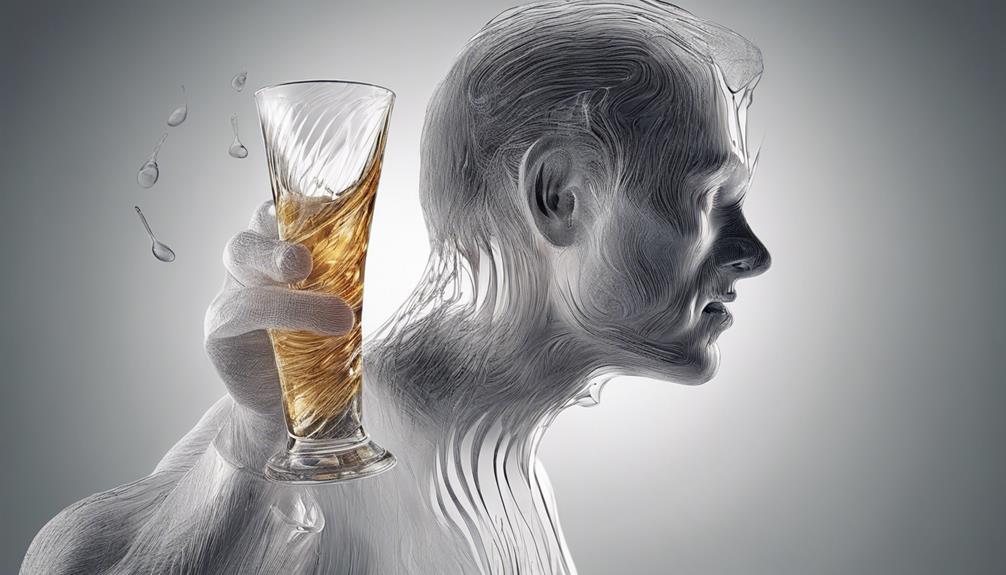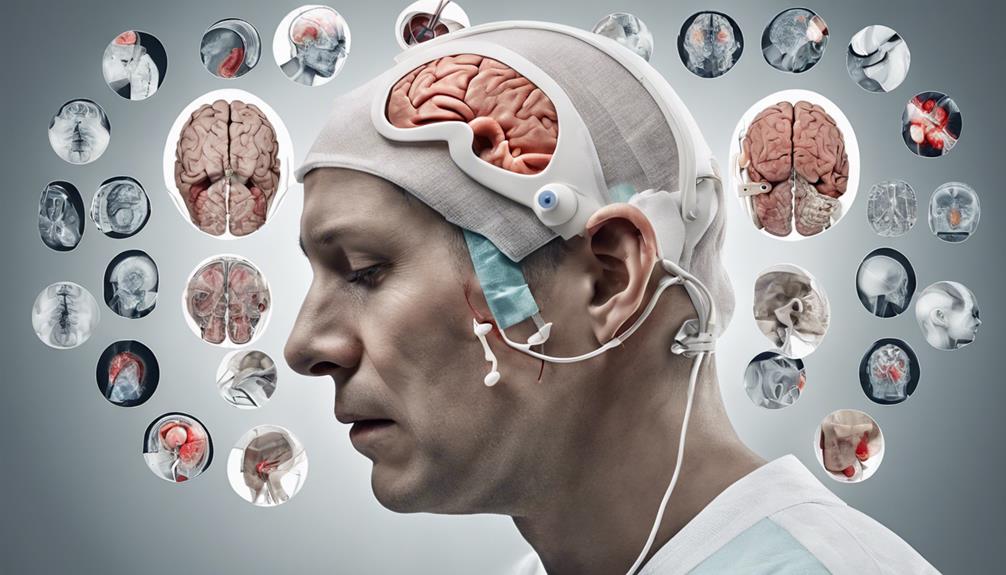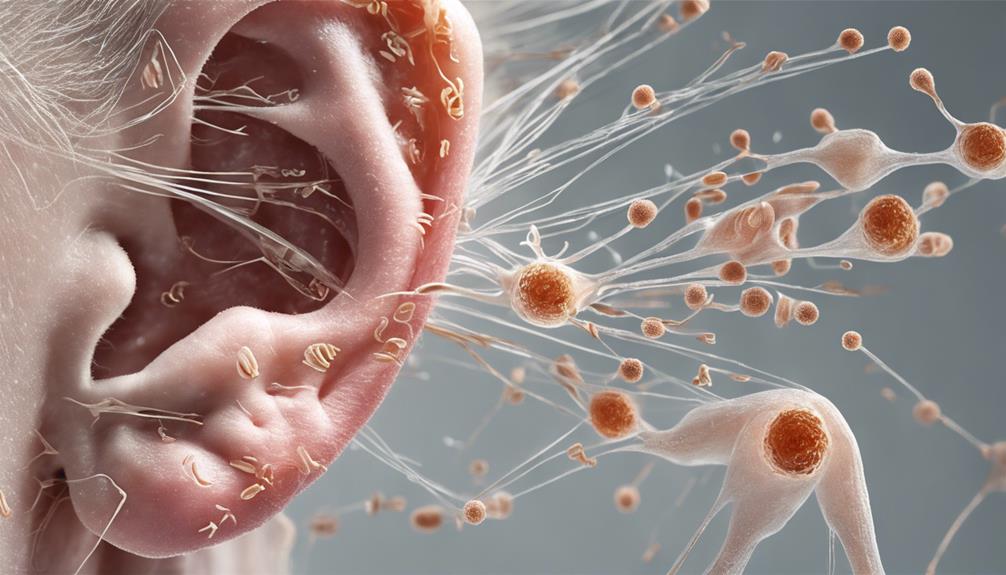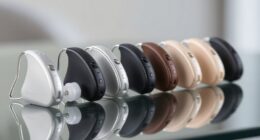As we navigate the intricate web of potential consequences stemming from car accidents, the impact on our hearing is often disregarded.
The intricate interplay between vehicular collisions and auditory impairment is a complex yet crucial aspect that demands our attention.
Understanding how a car accident can lead to hearing loss unveils a realm of intricacies that can significantly alter one's quality of life.
Let's explore the intricate mechanisms at play and the profound implications they hold for those affected.
Key Takeaways
- Head trauma and whiplash can lead to inner ear injuries and hearing impairment.
- Symptoms include muffled hearing, dizziness, and difficulty in noisy environments.
- Permanent effects include sensorineural damage and irreversible hearing loss from various car accident factors.
- Treatment involves immediate care, evaluation by an audiologist, and possible interventions like hearing aids.
Types of Hearing Damage in Accidents
When involved in car accidents, various types of hearing damage can occur due to the impact and forces experienced during the collision. Head trauma from car accidents can lead to significant inner ear injuries, including damage to the cochlear blood flow and inner ear structures. This trauma can result in permanent hearing loss, especially when affecting delicate hair cells responsible for sound perception. Whiplash injuries, common in car accidents, can also cause inner ear damage, contributing to conditions like tinnitus and TMJ disorder, which can impact hearing function.
Moreover, the sudden deployment of airbags during accidents can expose individuals to extremely high sound levels, exceeding 140 dB and even reaching up to 178 dB with side airbags. This abrupt noise can cause immediate and irreversible damage to hearing, particularly affecting the cochlea and auditory pathway. Understanding the diverse ways in which car accidents can lead to hearing impairment is crucial for recognizing and addressing potential issues related to inner ear damage and permanent hearing loss.
Symptoms and Signs of Hearing Loss

Experiencing difficulty distinguishing voices in noisy environments can often signal the presence of hearing loss following a car accident. Muffled or foggy hearing, where sounds lack clarity, could indicate hearing impairment post-accident.
Additionally, ear pain, pressure, or a feeling of fullness in the ears may suggest damage affecting hearing acuity. Dizziness or vertigo, especially when combined with hearing issues, could point towards inner ear damage resulting from a car accident.
It's crucial to seek immediate consultation with an audiologist for early diagnosis and treatment of any suspected hearing loss following an accident. These symptoms serve as warning signs of potential ear injuries or brain trauma resulting from traumatic events like car accidents.
Recognizing these signs promptly can lead to better management of hearing loss and improve the overall quality of life for individuals affected by such injuries.
Permanent Effects of Hearing Loss
Following a car accident, permanent effects of hearing loss can result from various forms of damage to the inner ear structures, including inner ear hair cell damage, ruptured eardrums, and traumatic brain injuries affecting the auditory pathway.
The lasting consequences of such injuries can lead to permanent sensorineural hearing impairment. The impact of blunt neck trauma on cochlear blood flow may result in irreversible hearing loss. Additionally, direct trauma to the middle ear or inner ear structures can cause extensive damage, culminating in lifelong hearing impairment.
The disruption of blood flow to the cochlea is a critical factor in determining the permanence of hearing loss post-accident. Understanding the intricate connection between traumatic brain injuries and inner ear structures is vital in predicting the severity of permanent hearing loss.
Consequently, recognizing the complexities of these injuries is crucial for evaluating and addressing the long-term effects on hearing.
Seeking Treatment for Hearing Loss
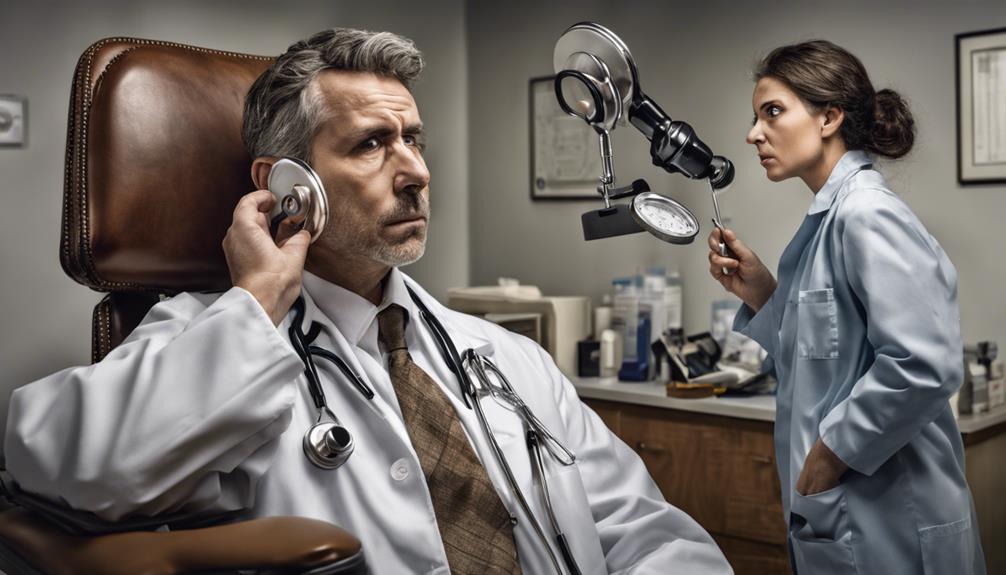
After experiencing permanent effects of hearing loss following a car accident, seeking immediate treatment is crucial for optimal recovery and management of the condition. Upon sustaining an injury in a car accident, it's imperative to seek medical attention promptly to address potential hearing loss. Consulting with an audiologist for a thorough evaluation, including comprehensive hearing tests like audiogram testing, is essential for an accurate diagnosis and tailored treatment plan.
Treatment options for hearing loss resulting from car accidents may encompass hearing aids, cochlear implants, assistive listening devices, and in severe cases, surgical interventions. Additionally, counseling and participation in support groups can offer emotional support and guidance to individuals coping with post-accident hearing loss.
Regular follow-up appointments with an otolaryngologist are necessary to monitor progress, make any necessary adjustments to the treatment plan, and ensure optimal recovery. Seeking timely and appropriate treatment can significantly impact the management and outcomes of hearing loss post-car accidents.
Compensation for Hearing Loss
Navigating the complexities of compensation for hearing loss after a car accident requires a thorough understanding of the factors influencing the potential payouts. When seeking compensation for hearing loss, several key points must be considered:
- Compensation for hearing loss claims from car accidents can vary significantly, ranging from $50,000 to $250,000 depending on the severity and impact of the impairment.
- Unlike some other types of personal injury claims, there's no exact formula or calculator for determining compensation for hearing loss, with the extent of the impairment playing a crucial role.
- Providing thorough documentation of medical expenses, expert testimonies, and medical records is essential in establishing the validity of the hearing loss claim.
- Compensation for hearing loss may cover various aspects such as lost wages, medical costs, pain, suffering, and emotional distress resulting from the accident.
- Seeking legal advice early on and understanding the time limits for filing claims are vital steps in ensuring fair compensation for hearing loss following car accidents.
Frequently Asked Questions
How Much Is a Tinnitus Settlement?
Tinnitus settlement amounts can vary widely, typically ranging from $50,000 to $250,000. The exact payout depends on the severity and impact of the condition. Documentation of medical expenses and expert testimony are crucial for proving tinnitus causation and securing a fair settlement.
Compensation may cover not only medical costs but also pain and suffering. Seeking legal guidance is essential to understanding claim deadlines and ensuring adequate compensation.
Is Tinnitus After a Car Accident Permanent?
Tinnitus after a car accident can vary in permanence based on the severity of the auditory system damage. Immediate medical attention post-accident is crucial to assess the potential permanence of tinnitus.
Consulting with specialists like an otolaryngologist or audiologist is key for effective management. Whether tinnitus is temporary or permanent, timely evaluation and treatment are essential for post-accident care.
Can Accidents Cause Hearing Loss?
Yes, accidents can cause hearing loss. Factors like head trauma, whiplash, and exposure to loud noises during impact can lead to various levels of hearing damage. Symptoms may include difficulty hearing clearly, ear pain, and dizziness.
Seeking prompt evaluation by an audiologist post-accident is vital for early detection and management of potential hearing issues. Immediate attention can help address any hearing loss effectively and prevent long-term complications.
Why Do My Ears Feel Clogged After a Car Accident?
After a car accident, our ears might feel clogged due to various reasons like blunt trauma affecting the middle or inner ear structures. The impact forces can lead to sensations of pressure or blockage, while whiplash injuries may tense muscles around the Eustachian tube.
This can contribute to the feeling of ear fullness. Understanding these potential causes can help us address any discomfort or blockage effectively.
Conclusion
As we navigate the aftermath of a car accident, the road to recovery may seem daunting.
However, like a lighthouse guiding ships through turbulent waters, seeking timely treatment for hearing loss can illuminate a path towards healing and restoration.
By understanding the impact of such injuries and taking proactive steps to address them, we can reclaim our sense of sound and move forward with clarity and resilience.


